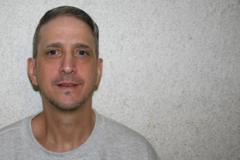The U.S. Supreme Court has made a significant move, ordering a new trial for Richard Glossip, the Oklahoma inmate on death row. In a 5-3 decision, the Court reversed an earlier ruling from the Oklahoma Court of Criminal Appeals, with notable support coming from both sides of the political aisle, including the state's Republican attorney general. Glossip, now 62, was convicted in the 1997 murder of Barry Van Treese, the owner of a motel where Glossip worked. Despite his conviction, he has persistently claimed he is innocent.
Writing for the majority, Justice Sonia Sotomayor stated that the prosecution failed to fulfill its constitutional duty by not correcting false testimony presented during the trial. The case against Glossip primarily hinged on the testimony of his colleague, Justin Sneed, who was convicted for the crime but alleged that Glossip orchestrated the murder. New evidence revealed that Sneed had previously received treatment for severe psychiatric issues, which was not disclosed to the defense.
Glossip's legal battles began with his 1998 conviction, which was overturned in 2001. He faced a second conviction in 2004. Over the years, he has seen nine execution dates postponed, and at one point, was moments away from lethal injection before it was halted for a drug review. His plight has attracted support from high-profile advocates, including Pope Francis, Kim Kardashian, and Sir Richard Branson, demonstrating the public's growing concern about the death penalty and its potential for wrongful convictions.
Writing for the majority, Justice Sonia Sotomayor stated that the prosecution failed to fulfill its constitutional duty by not correcting false testimony presented during the trial. The case against Glossip primarily hinged on the testimony of his colleague, Justin Sneed, who was convicted for the crime but alleged that Glossip orchestrated the murder. New evidence revealed that Sneed had previously received treatment for severe psychiatric issues, which was not disclosed to the defense.
Glossip's legal battles began with his 1998 conviction, which was overturned in 2001. He faced a second conviction in 2004. Over the years, he has seen nine execution dates postponed, and at one point, was moments away from lethal injection before it was halted for a drug review. His plight has attracted support from high-profile advocates, including Pope Francis, Kim Kardashian, and Sir Richard Branson, demonstrating the public's growing concern about the death penalty and its potential for wrongful convictions.





















